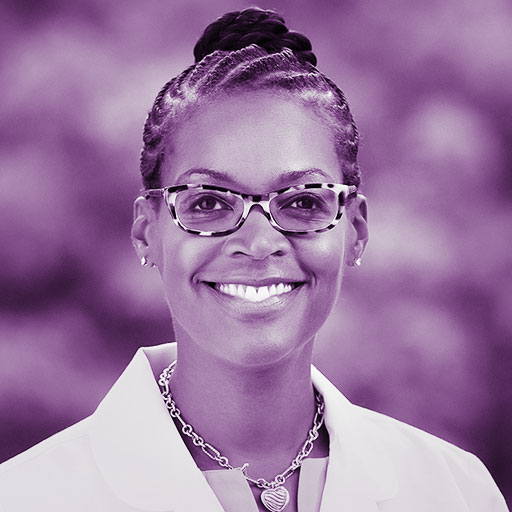Episode 92: Fertility 101: Uterine Fibroids
We’re launching a new series called, Fertility 101, because there’s no shortage of daunting terms to keep your mind running. In this series, we’ll do a quick and dirty breakdown on a specific topic with insights from a fertility expert.
The first episode covers Uterine Fibroids, a condition that is way more common than you might think. In fact, about 70% of women will be diagnosed with fibroids in their lifetime — for Black women, It’s about 80%. Depending on their size and location, fibroids can cause infertility, or bring on uncomfortable symptoms like irregular bleeding or pelvic pain. While it’s common, many people will never know they have them or will never require medical intervention.
Dr. Desiree McCarthy-Keith, a fertility expert and Medical Director at Shady Grove Fertility of Atlanta, gives us a clear overview of uterine fibroids, the treatments, how it affects black women differently, and how it can cause infertility.
Guest: Dr. Desiree McCarthy-Keith, Shady Grove Fertility in Atlanta
Host: Dan Bulger
Learn more about Dr. Desiree McCarthy-Keith here or see if there’s a Shady Grove Fertility location near you.
For more information, visit Progyny’s Podcast page and Progyny’s Education page for more resources.
Be sure to follow us on Instagram, @ThisisInfertilityPodcast and use the #ThisisInfertility.
Have a question, comment, or want to share your story? Email us at thisisinfertility@progyny.com.
Here are some highlights from this episode:
What are Uterine Fibroids?
1:07-1:26
Dr. Desiree McCarthy-Keith: Uterine fibroids are non-cancerous muscle growth that develops in the uterus and they can distort the uterus. They can give women symptoms of painful menstrual cycles, irregular bleeding, pelvic pain, pain with intercourse, and they can also be a cause of infertility.
Are Fibroids Dangerous?
2:19-2:37
Dan Bulger: If you or a friend are diagnosed with fibroids, it doesn’t necessarily mean much of anything. Fibroids in and of themselves are not dangerous, but when there are symptoms, especially very uncomfortable symptoms, or symptoms that prevent pregnancy, then intervention can be helpful. With fibroids, just like real estate, it’s all about location and size.
Why it’s Different for Black Women
7:36-8:34
Dr. Desiree McCarthy-Keith: For Black women, the fibroids are more likely to develop at a younger age. We are more likely to have multiple that are larger, and we are more likely to undergo surgical procedures, whether it’s myomectomy or hysterectomy, for our fibroids compared to other ethnic groups. And what is very interesting is that when studies look at the progression of fibroids, usually fibroids are stimulated by hormone production. So, the greatest time to see activity from fibroids is when a woman is in her reproductive years. And then as we get close to menopause, hormone levels start to decrease, and fibroids usually do not grow beyond that point. They start to shrink a little bit. But what we’ve seen for Black women is that you don’t see that leveling off of the fibroid like other ethnic groups as you get into your 40s.

Host
Dan has been in the healthcare industry for the last six years as a multimedia content producer. Better known as ‘Video Dan’ he as interviewed numerous doctors, patients and other experts in the world of fertility. He’s also the producer for this podcast, This is Infertility. On a personal note Dan’s parents started fostering kids when he was four years old, and he considers himself a proud older brother to over 100 foster children.

Guest
Dr. McCarthy-Keith earned her medical degree from the University of North Carolina at Chapel Hill and also a Master of Public Health in maternal and child health from the University of North Carolina. She completed her Obstetrics and Gynecology residency training at Duke University Medical Center and a fellowship in Reproductive Endocrinology and Infertility at the National Institutes of Health in Bethesda, Maryland. During her fellowship, Dr. McCarthy-Keith’s research focused on the molecular mechanisms of uterine fibroid regulation and reproductive health disparities. She has special interests in male and female infertility, polycystic ovary syndrome, uterine fibroids, and in vitro fertilization. She has authored several peer-reviewed publications on reproductive and infertility topics and has presented her research nationally.
Prior to joining SGF Atlanta, Dr. McCarthy-Keith practiced general obstetrics and gynecology in Virginia and South Carolina. While in Maryland, she treated patients with reproductive endocrine and fertility disorders at the National Institutes of Health and Walter Reed Army Medical Center. Dr. McCarthy-Keith was a Lieutenant Commander in the United States Public Health Service Commissioned Corps and held the position of Assistant Professor of Obstetrics and Gynecology at the Uniformed Services University of the Health Sciences.
Dr. McCarthy-Keith is passionate about her vegan way of life. She shares her enthusiasm for plant-based nutrition with everyone she meets and she encourages her patients to incorporate healthy diet into their fertility lifestyle. A native of North Carolina, Dr. McCarthy-Keith is the proud mother of two energetic sons. She spends her free time in Atlanta visiting the zoo, strolling the botanical gardens, and cheering on the Braves.



